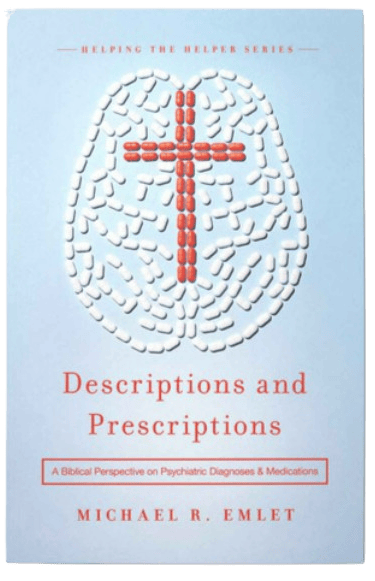Everyone is talking about mental health. Social media, Google, etc. Instinctively, we know this is a good thing. We all get anxious or feel depressed at times. One-in-five persons struggle with mental health issues. We all carry the weight of daily life, so it seems right to talk about mental health. At the same time, as Christians we tend to pump the brakes when the world around us is talking about something and the church is largely silent. Does that mean mental health shouldn't be a concern? What does the Bible teach?
The Bible doesn't use most of our modern terms to describe mental health. You'll never come across words like depressed, manic, or post-traumatic stress. It doesn't mean the ideas aren't there. It just indicates that maybe they had a different vocabulary. For instance, words we readily use today were never mentioned in Scripture such as "piano," "communion," "pew," or even "Bible."
Can you imagine how different Sunday morning would be if churches said, "We're not going to play a piano because God never mentions it." Most people don't think like that because we realize the writers of Scripture presented important ideas or concepts using the language and resources they had in their day. The idea of worship is present, but the vocabulary and tools were different then than now. They used lyres and ram's horns, while we use keyboards and microphones. They both refer to worship.
Likewise, the Bible doesn't use modern, psychological terminology but that shouldn't make us uncomfortable. The words don't appear in Scripture, but that does not mean the idea is foreign to the text.
In other words, just because David never says, "I'm depressed" doesn't mean he never experienced what we recognize as depression today. The Bible may not use the words "mental illness," but the experience was present. Scripture describes the depression of major figures such as Elijah, Jeremiah, and Job. We can also read about David's anxiety, King Saul's manic episodes, and Samson's narcissistic personality.
Here are some examples of mental illness in Scripture:
David's depression and anxiety:
“Be merciful to me, Lord, for I am in distress; my eyes grow weak with sorrow, my soul and body with grief. My life is consumed by anguish and my years by groaning” (Ps.31:9-10).
“All night long I flood my bed with weeping and drench my couch with tears. My eyes grow weak with sorrow; they fail because of all my foes” (Ps.6:6-7)
Elijah's depression:
"Elijah was afraid and ran for his life...he himself went a day’s journey into the wilderness. He came to a broom bush, sat down under it and prayed that he might die. “I have had enough, Lord,” he said. “Take my life..." he lay down under the bush and fell asleep..." (1 Kings 19:3-6).
Job's depression:
"Sighing has become my daily food; my groans pour out like water…I have no peace, no quietness; I have no rest, but only turmoil...Nights of misery have been assigned to me. When I lie down I think, ‘How long before I get up?’ The night drags on, and I toss and turn until dawn...I have no concern for myself; I despise my own life...My face is red with weeping, dark shadows ring my eyes” (3:24-26; 7:3-4; 9:21; 16:16 ).
Jeremiah's post-traumatic stress:
"Women have been violated in Zion, and virgins in the towns of Judah. Princes have been hung up by their hands...I am the man who has seen affliction...I remember my affliction and my wandering, the bitterness, and the gall. I well remember them, and my soul is downcast within me"(Lam.5:10-15; 3:1-2, 19-20).
Samson's narcissistic personality:
"I have seen a girl...now get her for me as my wife...she's the right one for me" Jdg.14:1-3).
The Bible does teach us about mental illness. We may not recognize it because there is no diagnosis or modern language, yet the concept is there. And if God records it for us, then we have to ask why? The answer is simple: God is concerned about our mental health.
What does the Bible say about mental illness?
Related:







